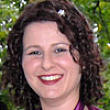 If your organization is struggling to tell your story, you are not alone. Chances are if you are like most organizations, you actually have access to the greatest stories from your donors, activists, and key stakeholders, but these stories just aren’t being captured by staff people or written down. I was doing some brainstorming with my colleagues over at Rad Campaign and some friends in the community and we came up with several ways to reveal your organization's best stories.
If your organization is struggling to tell your story, you are not alone. Chances are if you are like most organizations, you actually have access to the greatest stories from your donors, activists, and key stakeholders, but these stories just aren’t being captured by staff people or written down. I was doing some brainstorming with my colleagues over at Rad Campaign and some friends in the community and we came up with several ways to reveal your organization's best stories.
Ask These 10 Questions To Find Your Stories
- Why does your organization exist? Note, don't take the easy way out and answer this question with your mission statement. You need to dig deeper.
- What drives your organization?
- What is special or interesting about the way your organization does business and serves its audiences and community?
- Consider framing your story in a fairy tale structure. Who is the villain, who is the victim, who is the hero, what is the quest, what are the setbacks, what are the obstacles, what are your victories?
- Think of your organization as Odysseus trying to get home to share your mission in Ithaca, Greece. What challenges, monsters, and obstacles does your organization have to overcome on its way home?
- Why do people feel connected to your organization?
- How does our organization inspire you? Note this question should be aimed at target audiences and your community.
- How dooes our organization impact your lives? Ultimately your organization wants to figure out how you might build bridges to be most relevant to them. Note this question should be aimed at target audiences and your community.
- What sets your organization apart or makes you or what you are doing unique? I think every department should answer this question inside an organization.
- Why do you care about what our organization is doing? This question should also be aimed at target audiences.
Now I want to hear from you. What are some additional questions you think would be useful for nonprofits to ask themselves or their community when trying to form their stories?
Special thanks to Sue Spaight, David Svet, Amy Vernon, and Liz Scherer for contributing their great suggestions.



COMMENTS